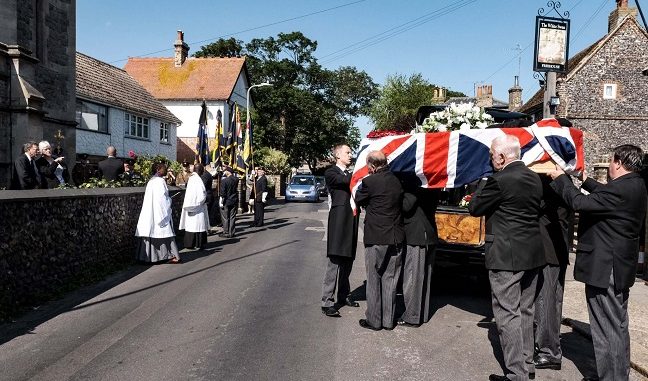
St Andrew’s Church in Broadstairs was packed today (July 23) as the community came together to give former Prisoner of War Charles Saunders a fitting send off.
Maurice House resident Charles died in his sleep on July 4 aged 101. The war veteran, had no close surviving family.
Birmingham-born Charles was just 21 when he enlisted into the Welsh Guards. He served from December 1939 until January 1946, and from 1940 – 1945 was a prisoner-of-war at Poland’s Stalag VIIIB/344 Lamsdorf.
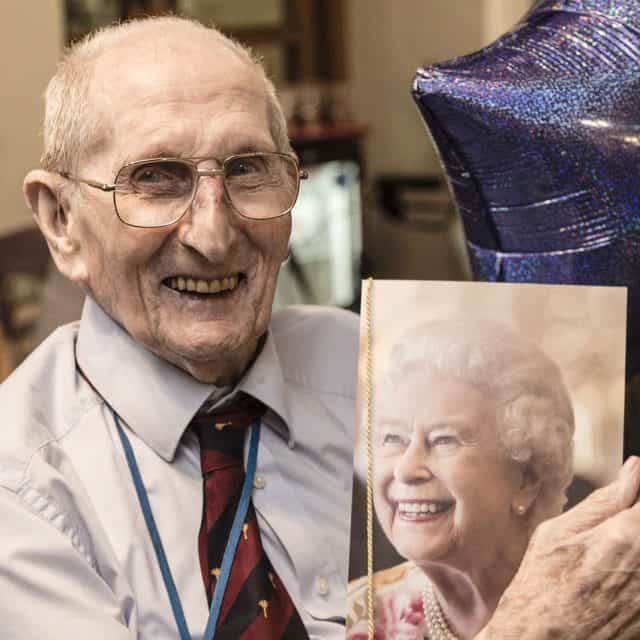
The response was a crowd of some 200 people, including military representation, gathered at the church this morning for the service led by Rev Philip Musindi.
Among attendees were youngsters from Dane Court school who had befriended Charles through their Sixth Form Health and Social Care studies, members of the Welsh Guards and many standard bearers.
As details had been widely shared on veterans’ social media sites there were many ex-servicemen, some travelling from as far afield as the Isle of Wight to attend. Many musicians also came to pay their respects and there were a number of serving Armed Forces from Chatham, Canterbury and Folkestone.
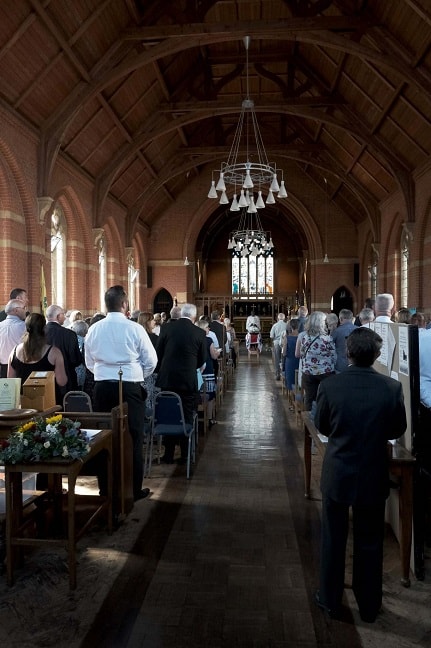
Close friend Judith Baker, who had known Charles for some 30 years, said: “The service was very well attended with standard bearers and military regiments.”
Dan Court teacher Judith met Charles through involvement with the Wellesley House School orchestra and he became an honorary family member.
In a touching eulogy at the service she said: “Charles became part of our family routine. Christmas Day, Boxing Day, New Year, Easter, birthdays and many Sunday lunches. We took him to Oostende for a day trip, where he became sea sick and blamed the milk in his coffee – never to have milk in his drinks again; to Normandy together with my parents for a week enjoying the cider trail; a day trip to meet up with the wonderful Abrass family in Boulogne and later, to Poland to the site of Stalag VIIIB, which became the start of something quite significant. My two boys, now I look back, were so generous in spirit – gladly giving time to Charles, listening to him and helping to look after him.
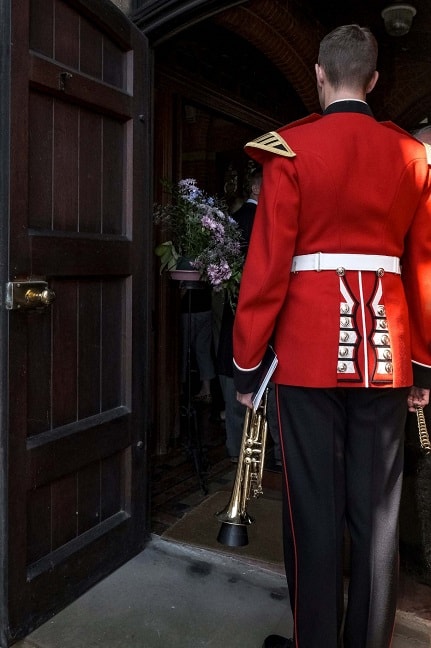
“Charles had so many wonderful stories to tell about his earlier life and we were held gripped by the prisoner of war stories and fascinated to gain glimpses of life in the early 30s, when Charles was a young man. His memory, vivid and sharp, was incredible, right until the very end.”
Talking about Charles and his involvement with students at the school, Judith said: “It was in introducing the students to Charles, within the context of Health and Social Care that I realised that Charles had probably experienced some of the most significant traumas and sadness in his long life that anyone could suffer. But he didn’t let it show. ‘There was no such thing as counselling then’, he once said, ‘We just got on with it’. “
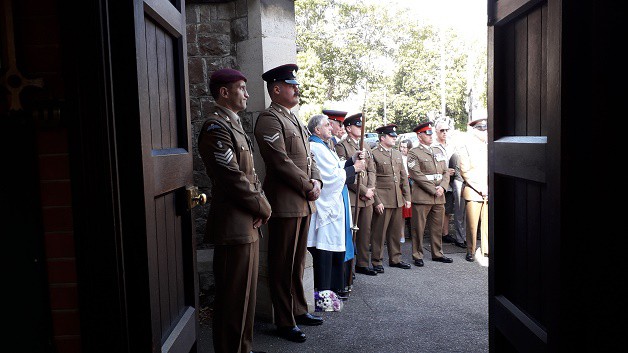
Charles had a strict upbringing, living with his grandparents, but his grandfather taught him to play the violin, starting a lifelong passion for music.
Judith said: “Had there not been an economic slump and depression in the country, after the First World War, and then a Second World War, it is highly probable that Charles would have studied music at college or university and gained qualifications but life was not so generous to that generation, and rather than study and establish himself as a professional musician or teacher of music, Charles spent four and a half years in a Prisoner of War Camp.
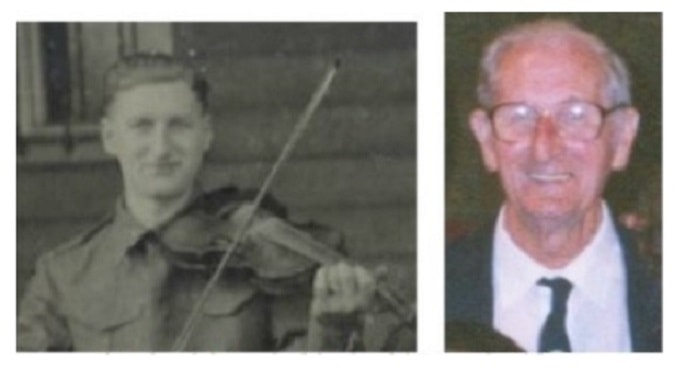
“He used his skills as a player in the camp, somehow managing to acquire a violin, and set up a music group with other fellow prisoners, to entertain the men (and the German guards!) His personal demeanour enabled him to survive the ordeal, translating into German for the men who could not speak the language and helping colleagues out where he could.
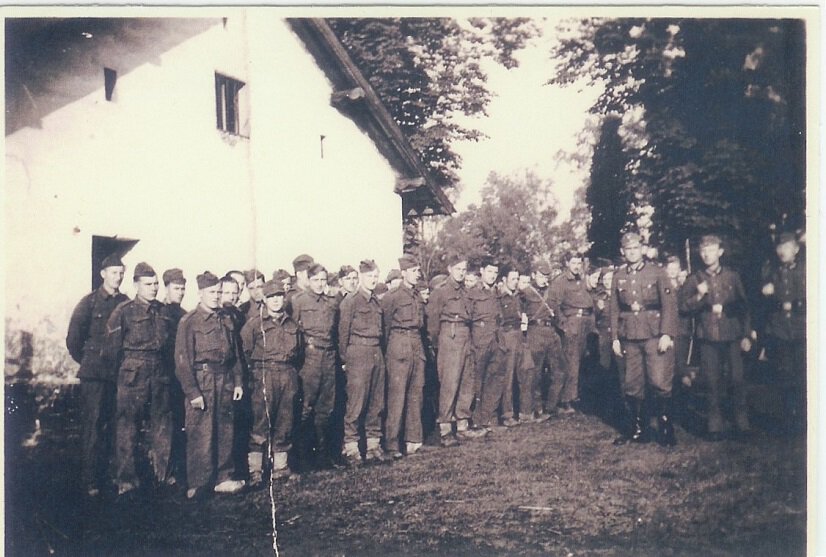
“He was, to all intents and purposes, respected as a solid and faithful soldier – disciplined, and accepting of his situation – but with that slight rebellious streak – planting trees for the enemy and then, severing every other one at the roots with the spade, so it could not grow – just under the soil where it could not be seen – one for Hitler and one for the King!
“Charles never bore a grudge against the Germans, however.
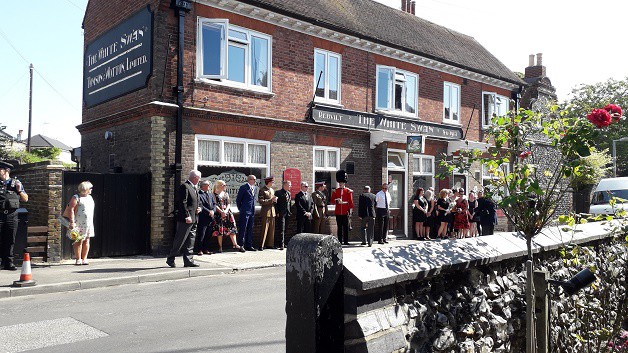
“Charles is a shining example of a man of true faith – a man who, despite the most private and innermost sadness and grief, could still present a positive outlook, which penetrated to the very depths of his being. He was a man who lived close to God. He believed that his Guardian Angel had been with him throughout many adventures. His deep love for Joan, his wife, whom he nursed and cared for as she suffered with Parkinson’s disease and dementia, never ceased. He told me only in the last few months that he felt Joan’s arm around him as he lay in bed. He never complained or whinged, even when he was placed in a less than desirable care home that has since closed.
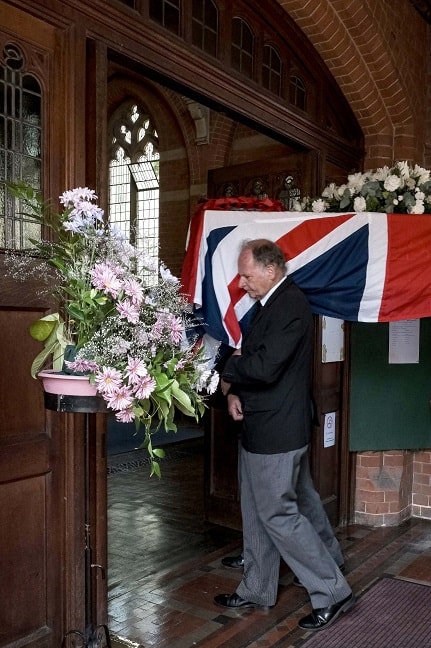
“The opportunity to spend his final years in Maurice House was a true gift that was richly deserved, and he was so grateful to the Welsh Guards for discovering him and bringing him home, into the care of the British Legion.”
After Charles lost wife Joan and adopted son Derek it was music that helped him make friends and gave him new purpose He played in the Thanet Light Orchestra, the Thanet Training Orchestra and in the Broadstairs and St Peters Concert Band as well as several ensembles. At the age of 90 Charles was still playing with the Broadstairs and St Peters Concert Band, sitting on a high stool with double bass in hand, delighting audiences with his playing.
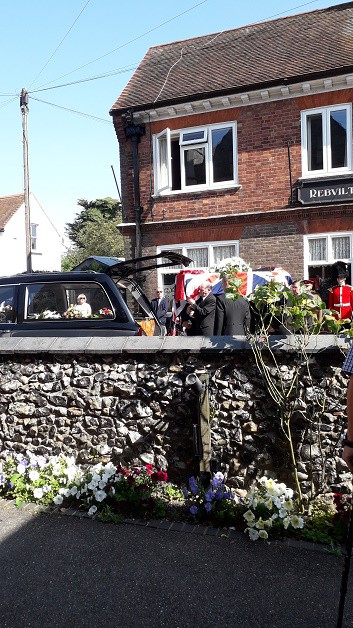
Judith’s eulogy added: “Charles was not a wealthy man, but he was a generous man. He was not rich in material terms, but he was rich beyond riches in integrity, honesty, Christian love and faith. It was a privilege for those of us to be able to sit with him in the last hours of his long life.”
Tribute was also paid to his great friend Sylvia to whom Charles entrusted his affairs.
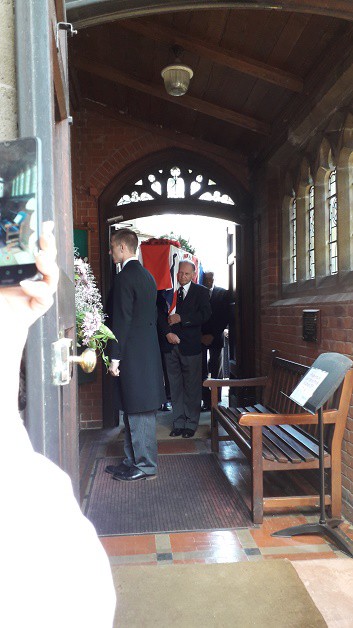
Philip Baker added: “Charles was not interested in fame, though we his friends are keen to keep his story alive and marvel at it. The floral tributes and cards that have arrived at St Andrews are from such people, who wanted to mark the occasion and to acknowledge the part Charles played, undoubtedly unknowingly, in enabling them to discover more about the war time experiences of their loved ones.”

